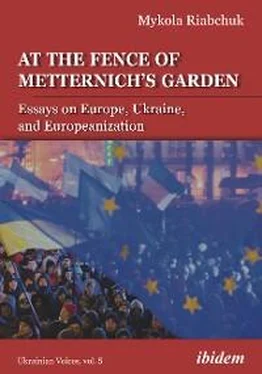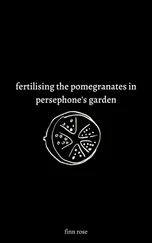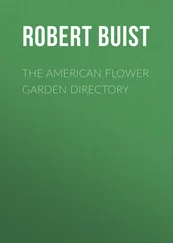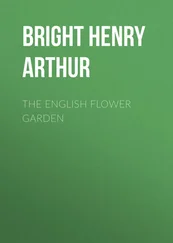ibidem-Press, Stuttgart
Contents
Introduction
Part One European Dreams
(1) Behind the Fence
(2) Barbecue in the European Garden
(3) Ambiguous Borderland
(4) ‘Eurasian’ Othering
(5) Metaphors of Betrayal
Part Two Maidan and Beyond
(6) Not-So-Unexpected Nation
(7) Pluralism by Default
(8) What’s Left of Orange Ukraine?
(9) The End of Post-Soviet Pragmatism?
(10) After the Crash
(11) Maidan 2.0.
(12) The Fourteenth Worst Place
(13) Dying for ‘Europe’
(14) Crying Wolf
(15) Ukraine’s Ordeal
(16) Passions over Federalization
(17) On the “Wrong” and “Right” Ukrainians
(18) Turn to the Right—and Back
Part Three Lessons of Solidarity
(19) My Polish Schism
(20) A Fortress of Rules
(21) Repossessions
(22) Eight Jews in Search of a Grandfather
(23) How I Became a ‘Czechoslovak’
(24) On Bridges and Walls
(25) An Incident
Bibliography
As early as 1918, the prominent Ukrainian historian Mykhailo Hrushevsky, who then headed the short-lived Ukrainian People’s Republic, published a cycle of political pamphlets under the characteristic title “On the Threshold of the New Ukraine.” There, he tried to outline the basic principles and parameters upon which the nascent Ukrainian state should be built. He covered the army, culture, and government bureaucracy, as well as the various aspects of Ukraine’s international politics, quintessentially defined in the title of one of his essays as “Our Western Orientation.”
As a professional historian, he could easily prove that, for centuries,
Ukraine had been living the same life with the West, experiencing the same ideas and borrowing cultural models and resources for its own culture building. Yet, he knew also that since the end of the 18th century Ukrainian contacts with the West “had weakened and declined under the pressure of forceful russification of Ukrainian life; and Ukrainian life and culture had been drawn into a Russian, Greater Russian, period.” As a result, “19th-century Ukraine was torn from the West, from Europe, and turned to the North, pushed forcefully into the deadlock-grip of Great Russian [imperial] culture and life. All Ukrainian life was uprooted from its natural environment, from the historically and geographically determined way of development, and thrown onto Russian soil, for destruction and pillage [Hrushevsky 1991: 141–144].
“Return to Europe,” therefore, was seen by a leading Ukrainian nation-builder as a return to the norm, a fixing of historical injustice and perversion, a healing of a developmental pathology. Such a romantic approach emerged naturally from modern Ukrainian nationalism which, from its emergence in the first half of the 19th century, had to emphasize Ukraine’s ‘otherness’ vis-à-vis Russia. This meant, in particular, that Ukrainian activists not just praised the alleged Ukrainian ‘Europeanness’ as opposed to evil Russian ‘Asianness’; they had to accept the whole set of Western liberal-democratic values as ‘natural’ and ‘organic’ for Ukrainians (yet ‘unnatural’ for Russians).
Ukrainians built their claim to ‘Europeanness’ upon medieval and early-modern rather than modern history:
The Kievan State combined a predominantly Eastern, Greek, Byzantine religious and cultural tradition with a predominantly Western social and political structure … Political Byzantinism remained totally alien to Kievan Rus … In pre-Mongol Rus, as in the medieval West—and in contrast to Byzantium and Moscow—political and ecclesiastical authority were not fused, but remained distinct, with each of the two autonomous in its own sphere. A social system characterized by contractual relations, a strong regard for the rights and the dignity of the individual, limitation of the power of the prince by a council of boyars and a popular assembly, autonomous communal city life, territorial decentralization of a quasi-federative nature—all this gave the Kiev polity a distinct libertarian imprint. And this libertarian, essentially European spirit also characterizes Ukrainian state organizations of later epochs. The Galician-Volhynian state of the 13th and 14th centuries evolved toward a feudal structure, and full-fledged feudalism, including feudal parliamentarism, may be found in the Lithuanian-Ruthenian state of the 14th through 16th centuries. The Cossack State of the 17th and 18th centuries possessed a system of estates ( Staendestaat ). It was not a coincidence that in the 19th century, during the epoch when Ukraine was politically assimilated to the Russian Empire, all-Russian liberalism and constitutionalism found its strongest support in the Ukrainian provinces of the Empire [Rudnytsky 1987: 8].
Another Ukrainian historian, the Byzantologist Ihor Sevcenko, has also argued that “the West’s influence on parts of Ukrainian territory began before 1349, acquired considerable intensity after 1569, and continued over the vast expanse of Ukrainian lands until 1793. When we take into account the impact of Polish elites in western Ukrainian lands and the right bank of the Dnipro, this influence can be seen to have continued until 1918 or even 1939.” He admitted, however, that “this West was, for the most part, clad in the Polish kontusz … and its principal cultural message in the decisive turning point between the 16th and 17th centuries was carried by the Polish variant of the Counter-Reformation” [Sevcenko 1996: 3–4, 6].
Sevcenko’s analysis had led him to what for many Ukrainians was an unpleasant conclusion; namely, that as soon as “neo-Byzantinism, the cultural mainstay of the tsardom of Moscow, lost out [and] the new Russian Empire began to import its culture from the West on a large scale … it was that empire that soon provided its Ukrainian dominions with Western values.” In sum, “an important general characteristic of Ukrainian cultural contacts both with the ‘East’ and with the West [was] the lack of direct access to original sources during long stretches of Ukrainian history. Ukrainians received cultural values from abroad through intermediaries … The Ukrainian secondarity [sic] carried a certain weakness with it” [Sevcenko 1996: 8].
This perhaps explains Hrushevsky’s phrase about the “deadlock grip of Great Russian culture,” into which Ukraine had been arguably pushed since the 18th century. It was not a matter of Russian culture per se, which had eventually become rather vibrant, attractive and hospitable for many Ukrainian newcomers. It was a problem of “secondarity” that became an unavoidable, inescapable fate of the stateless nation dispossessed of its upper classes. Since then and until recently, Ukraine has been ruled by a territorial rather than the national elite, and this important fact determined its subsequent (under)development. It was only in 1991 that independent Ukraine’s leaders recollected Hrushevsky’s idea of the “return to Europe,” and Hrushevsky himself returned to the national pantheon of the founding fathers of the new-old nation.
Still, the “return to Europe,” although proclaimed officially as Ukraine’s major strategic goal, was neither completed during the first decades after independence nor were any significant steps made in that direction besides political declarations and some very feeble and incoherent reforms. Some blame the West for not being interested in Ukraine’s “return;” some blame Russia for effectively obstructing its efforts; some blame the Ukrainian leadership for paying lip-service to the idea while doing nothing to accomplish it; and some blame the Ukrainian people who, by and large, have not proven to be as ‘European’ as many Ukrainian intellectuals would like them to be.
Читать дальше












